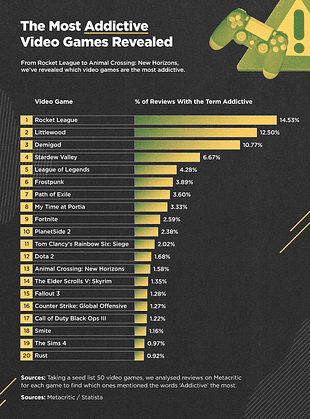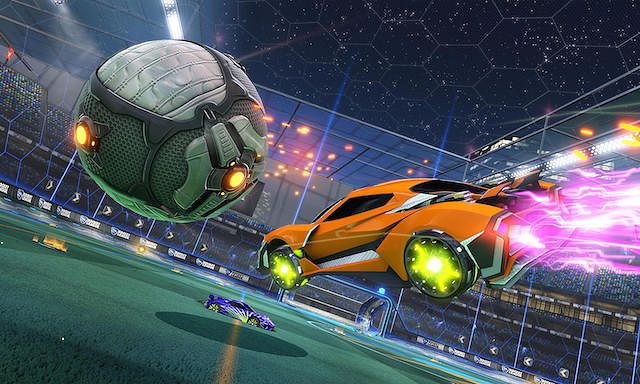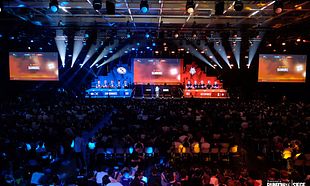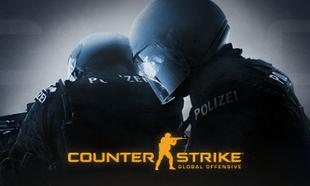Research in the United Kingdom has identified 'Rocket League' as the most addictive video game on the market today.
The research team at Private Rehab Clinic, Delamere, has carried out a new study to identify the most addictive games out there, and 2015's 'Rocket League' topped the charts.
The research used a seed list of 50 games and analysed user reviews on Metacritic and found the games that mentioned the words "addictive" the most.
While not the most accurate methodology, the findings have attempted to answer the age-old question of what is the most addictive video game.
'Rocket League' came out on top, with the word "addictive" found in 14.5% of user reviews, putting it at the top of the listings.
The 2015 game where players control rocket-powered cars in a version of football is one of the biggest games on the market, and has become a staple in eSports.
The game was noted as being addictive owing to its fast-paced action and its highly replayable value characteristics.
2020's 'Littlewood' also performed strongly in the findings, with 12.5% of reviews citing it's addictive nature.
'Animal Crossing: New Horizons', the game that defined 2020 for many, also featured in the top 20, with the life simulator becoming wildly popular during the pandemic.
Other familiar favourites such as 'Stardew Valley', 'League Of Legends', 'Fortnite', 'Rainbow Six: Siege', 'Skyrim' and 'The Sims 4' also featured on the list.

There are many aspects of video games that can cause make a game addictive per Martin Preston, Founder and Chief Executive at Delamere.
“One of the most addictive features of games is that many do not have pre-defined ends – this is most common in MMORPG games. What this means, is that the player does not get to a point where they have ‘completed’ every challenge or task, which brings the game to a natural end and allows them to move on."
"Instead, they are presented with continual challenges and tasks to overcome that keep them coming back again and again.
“Another addictive element is the social aspect of online games. While we were plunged deep into lockdown, ‘Animal Crossing: New Horizons’ was released."
"A Life Simulation Game, that allowed people to complete everyday tasks, such as shopping and gardening, from their own homes. It even allowed people to connect socially, by visiting each other’s islands."
"Normality was something we were uncertain about and, despite the fact the lockdown has been lifted, many people may feel more comfortable remaining in their gaming bubble."
While other obvious candidates were not included on the list such as 'Football Manager', 'World Of Warcraft', 'Minecraft', or mobile games such as 'Clash Of Clans' or 'Pokemon Go', the list represents a wide spectrum of games across different genres.
A 2021 systematic review and meta-analysis found that global prevalence of gaming disorder was estimated to be at 3%, which roughly translates to 60 million people (or more) suffering from gaming disorder.
Gaming addiction was recognised as a mental health condition in 2019 by the World Health Organisation, and is on track to be added to the International Classification of Diseases, ICD-11, in 2022.









































































